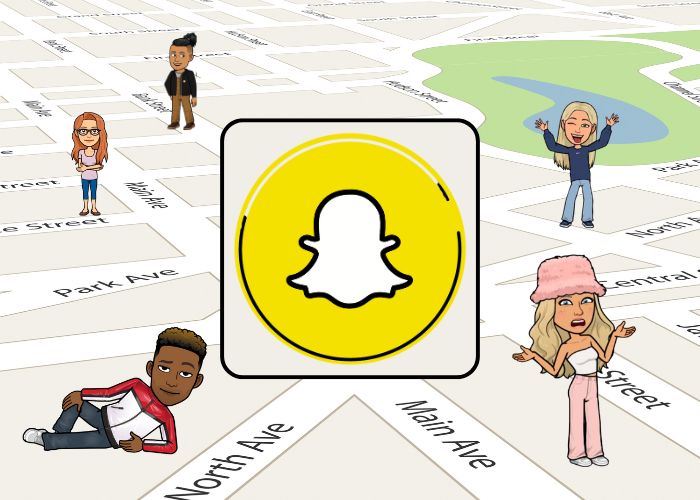The “Fear of Missing Out,” or FOMO, is a worried feeling that someone is missing out on fun activities or exciting events. According to The National Institute of Health, FOMO is often followed by “a compulsive behavior to maintain these social connections.” Many students believe that FOMO is often caused by things on social media, like the Snap Map.
Snap Maps is an application within the Snapchat app that is similar to the “Find My Phone” feature on Apple phones. The only difference is that the live location of friends is available.
Snap Maps was launched in June 2017 and has been extremely popular among Snapchat users. Those who choose to keep their location on allow their friends on Snapchat to see where they are on the map in real time. Snap Maps has a “Ghost mode” option where the user can choose to turn off their location for a time. Users can also change their location status to only be viewed by close friends.
Sophomore Creppé Somsiri believes that the Snap Map can make teenagers feel insecure in their friendships.
“I will see a group of friends together and I didn’t know about it until I looked at Snap,” said Somsiri. “You start feeling insecure about yourself, asking yourself why you weren’t invited, why are they together and not me?”
According to a study from Elon University, titled, “Psychological Repercussions of Location-Based Social Networks in Today’s Youth,” the author, Jenna Sachs, argues the dangers of LBSN (Location-Based Social Networks) on mental health. The study also examines the belongingness theory, a theory based on the need for humans to feel a sense of belonging.
“The belongingness theory suggests that adolescents are motivated to check Snap Map to find out what members of the group are doing at a given time and to fulfill their innate desire to belong,” Sachs wrote.
Belonging in friend groups and within friendships plays an important role in the fulfillment of an adolescent’s life.
The study also states that “viewing social media updates might cause the user to feel less connected with their friends and could induce feelings of anxiety and FOMO. […] Because adolescents are especially vulnerable at this point of development, one could predict that checking Snap Map would correlate to feelings of anxiety and low self-esteem in users.”
Sophomore Lainey Gluckman agrees that FOMO can lead to more serious issues.
“I feel like you can easily get FOMO, which may damage your mental health,” said Gluckman. “You might not know that your friends are hanging out and then find out through looking at Snap Maps. It is really easy to get jealous and worry about your friendships.”

